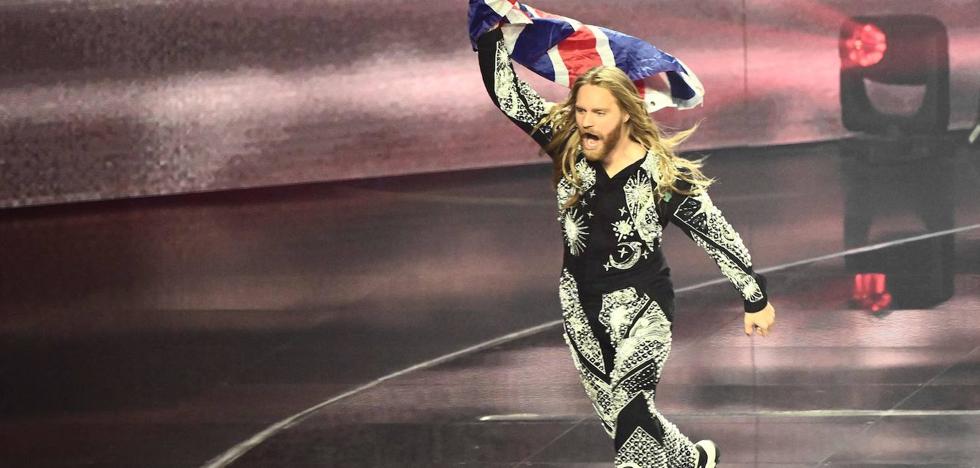The third promotion of the Residencies program of the Film Academy has come to an end. After months of workshops and rewrites, participants are already ‘flying’ alone, but with a recently passed audiovisual law harming independent production
“Now I have to think about what I’m going to do with my life.” Tomorrow, Friday, Marta Medina will officially no longer be a resident of the Film Academy. Together with the rest of his colleagues, a total of 10 men and 10 women, he was part of the third class of this public initiative that emerged in 2019 and has the support of the Madrid City Council. Since then, 57 creators have gone through this audiovisual project development tool, but these 20 will be the first to face the new audiovisual law passed by the Senate last Wednesday.
The rule introduces a controversial definition of independent producer, a change that professionals and industry associations have rejected because it penalizes non-majority films. “A country’s cultural heritage also goes through the cinema and it’s sad to see it go more and more unprotected,” explains Medina. “It worries me,” admits Leire Albinarrate, another of the former residents, “because if you know there’s only one type of story happening, you can lose the desire to take risks.”
Daniel Tornero, colleague Documentary, for his part emphasizes the importance of diversity – «the more heterogeneous an art is, the more it will grow»-, a quality that also defines them as a group, as the Residences animation projects, fiction and , non-fiction and television series. Tornero’s project is titled ‘Saturno’: «In 2018, my grandfather was arrested for child abuse and for the attempted kidnapping of an eight-year-old girl. Since then I’ve tried to understand who he is.” It will be his first documentary.
For Medina, ‘Laponia’ is his second fiction script: «I imagine it as a costumbrista horror film about empty Spain. I grew up in Soria and in the treatment I presented there was already the Castilian idea, the wheat fields and the literature of Machado». Nine months later, with workshops, consultancies and a lot of rewriting, this idea has grown into the fantasy genre and demographic changes have become possible disappearances.
Albinarrate has also undergone its special creative metamorphosis. He came in with a very preliminary proposal, just a few guidelines, “and I’m leaving with a written pilot and a very complete sales file.” In the closing act of the course, he presented his series proposal, ‘La mala vida en Madrid’, in front of a hundred producers gathered by the Film Academy.
During this course, each resident was accompanied by a film-maker. Tornero collaborated with director José Luis Guerín (‘The Academy of the Muses’). “I often say it changed my life,” he says. “It helped me understand what kind of movie I wanted to make.” Albinarrate’s teachers were the Sánchez-Cabezudo brothers, directors of series such as ‘La Zona’ and ‘Crematorio’. “Think you’re so immersed in a universe that you might push for something you think is fascinating,” says this screenwriter from Vitoria. “From the outside, they can point out what really grabs the attention of your project.” In the case of Medina, filmmaker Manuel Martín Cuenca (“The Daughter”) knows how to give him tools without imposing his vision, which is that “he asks you questions that are very helpful in reorienting the idea.”
During this time, they have also been able to learn from other professionals in the industry. The last one, Robert Cerdá, who gave an actor directing workshop in which the interpreters Irene Escolar and Miki Esparbé participated as volunteers. Whether former residents such as Pilar Palomero and Ion de Sosa have returned to tell their experiences. To closely follow the process, Tornero, a native of Alicante, has had to settle in the capital, although he has continued to film with his grandfather. “There has been a total transformation. If anything has made me grow in recent years, it has gone through the program.”
Medina’s move has not been physical but optical: «I come from working in journalism where you tell something different every day, but with a project like this you are committed to the long term and the remarkable thing is that you keep thinking about it. In every pitch you have to tell the story and then you reconsider it». For Albinarrate, the coexistence is also an enrichment for both professional and personal: “I came from the most mainstream television industry and here, with so many profiles, I was able to learn from colleagues who make independent films. Projects change, but you change too.
Source: La Verdad
I’m Wayne Wickman, a professional journalist and author for Today Times Live. My specialty is covering global news and current events, offering readers a unique perspective on the world’s most pressing issues. I’m passionate about storytelling and helping people stay informed on the goings-on of our planet.



